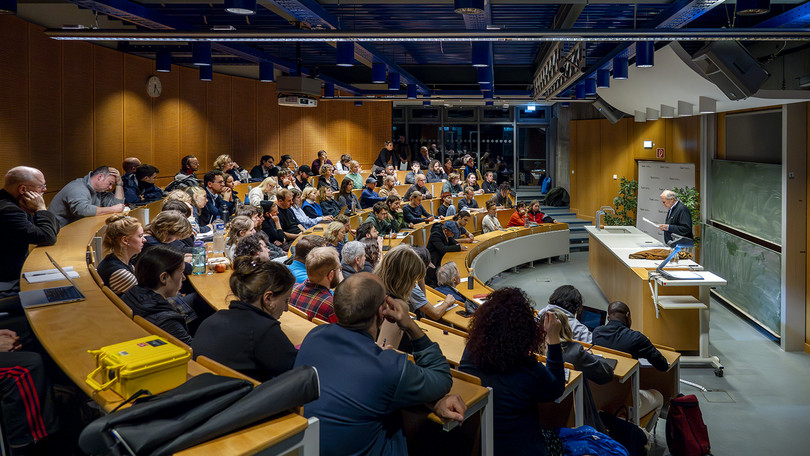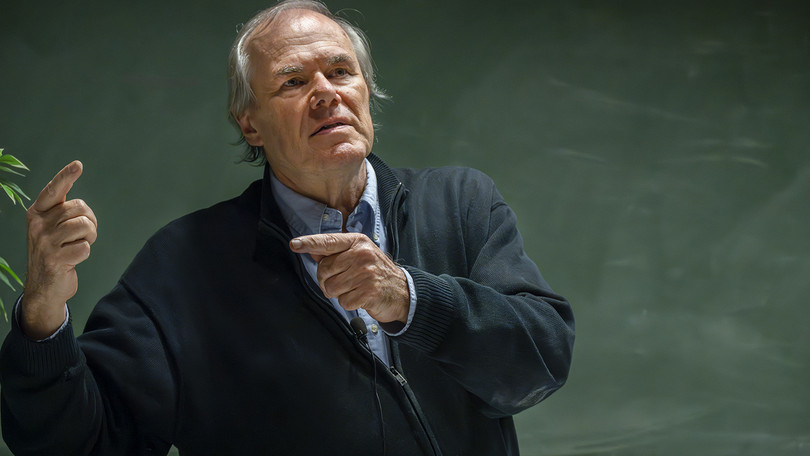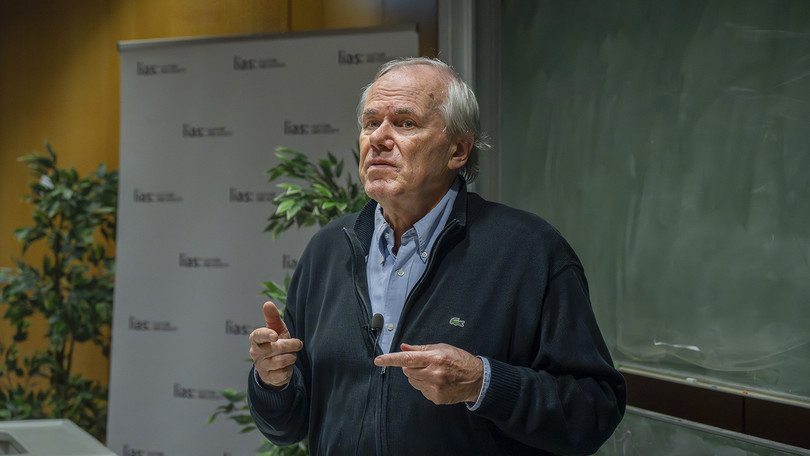LIAS Lecture: A Foucaultian Marxism for the 21st Century
Senior Fellow Alex Demirović on Marx and Foucault
2024-11-06 Michel Foucault claimed that he was neither a Freudian nor a structuralist nor a Marxist. Nevertheless, the French philosopher engaged with the work of Karl Marx. ‘Foucaultian Marxism’ is what LIAS Senior Fellow Alex Demirović calls the French philosopher's contribution to a critical and innovative Marxist theory. In his LIAS Lecture, he posed the question: how can Marx be continually updated for the 21st century?
Demirović starts from an interpretation of Michel Foucault as a critic of a traditional, authoritarian culture of Marxism. Foucault rejects both the narrowing of power to state power and to a purely economically understood power. Instead, he focuses on power technologies and power techniques. “Philosophy is replaced [in Foucault] by the systemic analysis of power and knowledge,” says Demirović.
Alex Demirović, an adjunct professor of political science and sociology at the Johann Wolfgang Goethe University in Frankfurt am Main, pointed to the central role of Foucault's examination of the concept of the reproduction of capital in Marx. Beyond the state and the economy, Foucault succeeds in constituting analyses of power as positive mechanisms. ‘Power’ is not in the singular, but should always be understood as ‘powers’, each with its own way of functioning. Then, according to Demirović, it can be seen that power is not exercised through law and ideologies and is therefore not an internalisation of oppression and violence, but is composed of power technologies that apply always and to everyone. Under the mechanisms of capitalism, we are practically all the same – even beyond hierarchies or classes.
Capitalism and no end
Foucault's examination of techniques of power, Demirović continued, had nothing to do with political activism. Rather, the philosopher showed the immanent process of an extensive, continuous reproduction of bourgeois society. “In a changing capitalist society,” Demirović said, “people develop practices within their conditions that reproduce them.”
According to Demirović, Foucault shows that the economic power (‘mute compulsion’) that arises from capitalism and forces subjects to certain actions and decisions is not new. By contrast, he focuses on the exercise and reproduction of bourgeois power, which has its own materiality in tactics and institutions. Ultimately, Foucault questions identity politics by addressing the struggle for differences and individuality on the one hand, and the exclusion of individuals that leads to alienation on the other, in which he follows Marx's intention of a final abolition of all classes.
Emancipation from Power
These considerations prompt Demirović to elaborate on the grey area between ‘legality and bourgeois illegality’, where Foucault, following Marx, extends reproduction in capitalism to include informal economic processes and violence. Only this construction makes it historically possible to understand criminal acts as crimes against a bourgeois society and thus to see them as‘enemies of society’, which in turn found institutions of discipline.
Illegality arises, according to Demirović, where techniques of power become a kind of normality as part of a disciplinary power, such as violence against women, children, police officers, journalists, security forces, etc. In other areas, too – such as fraud, corruption, tax evasion or the drugs trade – breaking the law can become a general practice, because individuals cannot be controlled outside the law and violence; there is always something unpredictable about the behaviour of individuals, who constantly challenge the foundations of the law. Discipline is carried out in areas of society that run counter to the vertical distinctions between state and society – such as schools, the military, factories, prisons, etc. Therefore, the reproduction of power is a continuity of conditions and their stabilisation, which always produces new reproductions of itself.
It is futile to rebel against these structures,” says Demirović, “as they permeate all areas of society.” They affect the family just as much as economic analyses, the media as much as political speeches, social science research, the labour market and the health system. At the end of his lecture, Alex Demirović asked a truly prophetic question: “How can people emancipate themselves from the idea of being led?”



